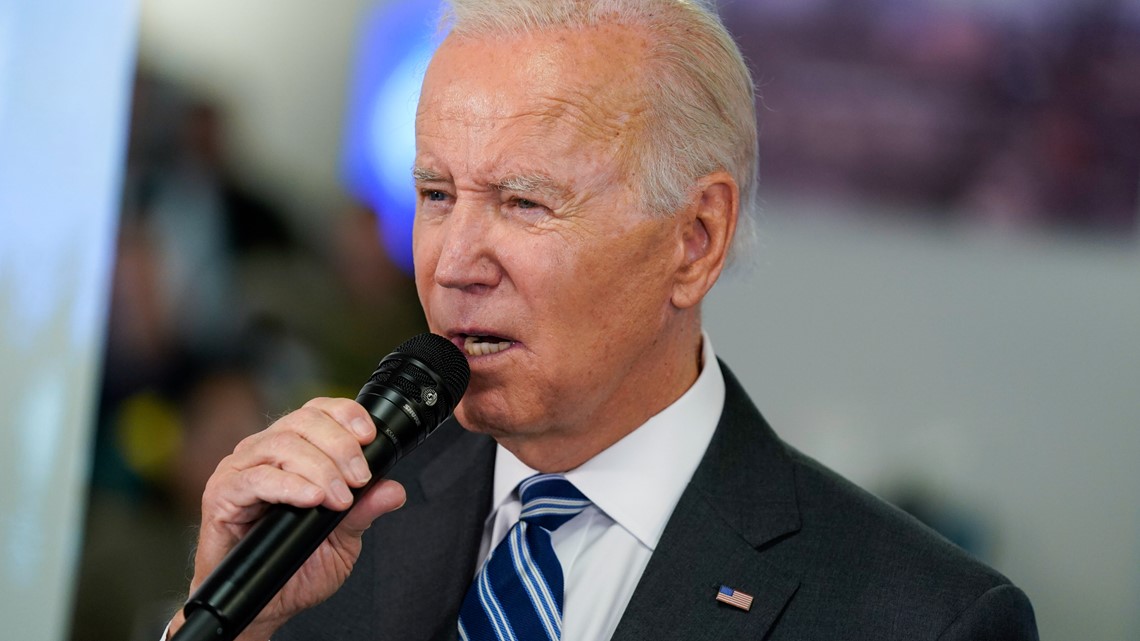On Friday, the US imposed sanctions on more than 1,000 people and companies linked to Russia’s invasion of Ukraine.
WASHINGTON — The United States on Friday imposed sanctions on more than 1,000 people and companies linked to Russia’s invasion of Ukraine, including the head of the Central Bank and the families of members of the Security Council after President Vladimir Putin signed contracts absorption of the occupied regions of Ukraine into Russia, contrary to international law.
The Ministry of Finance named hundreds of members of the Russian legislature, heads of the country’s financial and military infrastructure, and suppliers who fall under sanctions. The Commerce Department has listed 57 companies as export control violators, and the State Department has placed more than 900 people on the visa restriction list.
President of Ukraine Volodymyr Zelensky said that his nation is developing “accelerated” rate to join the NATO military alliance.
President Joe Biden said of Putin’s moves: “Make no mistake: these actions have no legitimacy.” He said the new financial penalties will impose costs on people and companies in Russia and abroad “that provide political or economic support to illegal attempts to change the status of Ukrainian territory.”
“I look forward to the signing of legislation by Congress that will provide an additional $12 billion to support Ukraine,” he said.
The United States and the European Union are increasing sanctions after Russia announced its mobilization 300,000 more troops will join the invasion of Ukraine, and Putin has ratified the results of Kremlin-organized “referendums” on annexation that Kyiv and the West call fake elections.
Putin warned that Russia would never give up the absorbed regions — Donetsk, Luhansk, Kherson and Zaporizhia regions — and would defend them as part of its sovereign territory.
Both houses of the Russian parliament will meet next week to approve the agreements on joining the regions to Russia.
Treasury Secretary Janet Yellen said: “We will not stand by as Putin fraudulently tries to annex part of Ukraine.”
“Today, the Treasury Department and the US government are taking sweeping steps to further weaken Russia’s already degraded military-industrial complex and undermine its ability to wage illegal war.”
Secretary of State Anthony Blinken said that the United States “unequivocally rejects Russia’s fraudulent attempt to change Ukraine’s internationally recognized borders.”
“This is a clear violation of international law and the Charter of the United Nations,” he said.
National Security Advisor Jake Sullivan also spoke with NATO Secretary General Jens Stoltenberg. The materials of the conversation refer to “the firm commitment of the United States and NATO to the sovereignty and territorial integrity of Ukraine.”
Democratic and Republican lawmakers this week accused the Biden administration of over- and under-promising about how hard and fast the first rounds of sanctions would hit Russia and damage Putin’s ability to continue waging war in Ukraine.
Pressed by lawmakers on the Senate Foreign Relations Committee to identify sanctions that could stop Russia’s incursion, Assistant Treasury Secretary Elizabeth Rosenberg, one of the architects of the administration’s sanctions regime, said the U.S. should focus first on curbing record oil production and gas profits that allow Russia to survive global financial penalties and continue its struggle.
The U.S. and its European allies are rushing to finalize a deal on measures they hope will achieve that goal and deliver a long-promised knockout blow to the Russian economy: curbs on seaborne oil exports from Russia that would undermine the prices Putin can make for his country’s oil in to the whole world.
State officials and the Ministry of Finance are also calling for stronger sanctions against Russian suppliers of weapons and high technology. They say that together, sanctions in these two areas could make fighting and war financing in Ukraine unsustainable.
Since the beginning of Russia’s invasion of Ukraine, the United States and European countries have imposed significant financial penalties on Russia, its leadership, and wealthy oligarchs associated with Putin.
The Allies went after Central Bank reserves, which underpin the Russian economy, and disconnected many Russian banks from a vital global financial network called SWIFT.
Meanwhile, the war is having a devastating effect on the global economy and has led to massive disruptions in energy and food supplies around the world.
The Organization for Economic Co-operation and Development said this week that the global economy will lose $2.8 trillion in output in 2023 because of the war.
https://www.10tv.com/article/news/nation-world/us-sanctions-russia-annex-ukrainian-regions/507-a6e6d12d-ab90-4b85-833b-804730240e69



